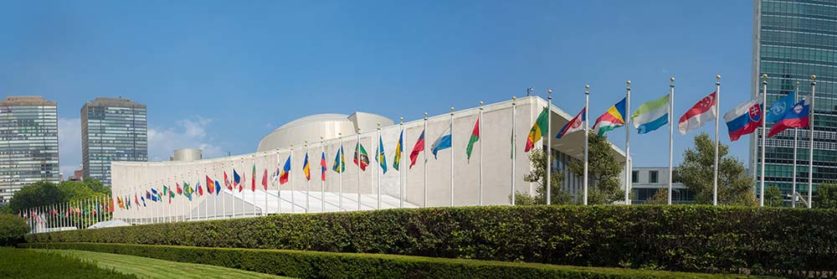
The UN’s special envoy for climate change, Mary Robinson, has criticised the UK and Germany’s continued subsidising of fossil fuel program as going against the spirit of the Paris climate deal.
Speaking to the Guardian, Robinson, who holds being Ireland’s first female president among her various achievements, warned that while certain positive steps were being taken by both countries, the increased financial aid for fossil fuel burning companies represents a backward step.
There appears to be a contradiction, Robinson argued, between ostensible commitments to fighting climate change, and actual implemented policies, often created in the name of energy security.
“Germany,” she said, “says it’s on track to end coal subsidies by 2018 but the German government is also introducing new mechanisms that provide payment to power companies for their ability to provide a constant supply of electricity, even if they are polluting forms, such as diesel and coal.”
Germany has been praised for steps that have been taken towards fighting climate change, including an agreed ban on fracking and the pledging of financial aid for developing countries to aid in their climate programs.
The UK received criticism from Robinson for offering tax breaks to oil and gas companies last year following falling commodity prices, and for at the same time cutting subsidies for renewable generators.
Robinson said, to the Guardian: “They’ve [the British government] introduced new tax breaks for oil and gas in 2015 that will cost the UK taxpayer billions between 2015 and 2020, and at the same time they’ve cut support for renewables and for energy efficiency,
“It’s regrettable. That’s not in the spirit [of Paris]. In many ways, the UK was a real leader [on climate change] and hopefully the UK will become again a real leader. But it’s not at the moment.”
Green Party leader Natalie Bennett seized the opportunity to urge new Prime Minister Theresa May to pay heed to what is now the second recommendation from a UN member that the UK government must step up to the plate if climate change is to be seriously tackled.
Bennet said: “This damning indictment of the UK’s energy policy comes just days after our new prime minister scrapped the Department of Energy and Climate Change and appointed an environment secretary who has consistently voted against measures to tackle climate change.
“I urge Theresa May to listen carefully to Robinson’s remarks and start reversing the damaging policies put in place by her predecessor – like giving tax breaks to fossil fuel companies while cutting subsidies for renewables.”
In November last year, the UK became the only G7 nation to be extending subsidies for fossil fuel burners following a pledge among the nations to phase all out all such financial aid programs.
Since then, however, Canada has announced further subsidies for natural gas programs and Japan has revealed funding for new coal mines.
Robinson did make it clear that while this round of criticism was aimed specifically at the UK and Germany, they were by no means the only countries guilty of apparent back pedalling.
“We want all countries to end [fossil fuel] subsidies,” she said.
Questions have already been raised about the nature of the G7 pledge to phase out fossil fuel subsidies, most recently by a group of various prominent political and geo-political figures called the Elders, who said: “when the G7 met in Japan in May, it failed to take action to end fossil fuel subsidies, merely reaffirming the intention to end all ‘inefficient’ fossil fuel subsidies – a commitment that is too vague.”
The Elders was founded by Nelson Mandela and currently counts among its roster the former UN General Secretary Kofi Annan (who currently chairs the group), former US president Jimmy Carter, former Norwegian prime minister Gro Harlem Brundtland and Mary Robinson, among others.
They recently published a report siting two major concerns when it comes to global commitment to climate change. One is that fact that “leaders are still making investment decisions that run contrary to the Paris Agreement”, of which the G7’s ‘vague’ commitment to phasing out subsidies is used as a case in point.
And beyond the vagueness of the G7 commitment, the Elders’ report also states that “G20 governments are still providing $444 billion a year in support for the production of fossil fuels, including through subsidies, publish finance and state-owned enter[rise investment.”
The other concern highlighted is the fact that “none of the top 10 emitters of greenhouse gases have ratified the Paris Agreement”.
One particularly prominent country whose ratification is awaited with some anxiety is the US, since presidential hopeful Donald Trump has said, very explicitly, that if he gets into power he is “going to cancel the Paris Climate Agreement”.
His attempts to do so would be made “very prolonged and difficult” if the agreement was to be ratified by the Obama administration by the end of the year, Robinson argued.




